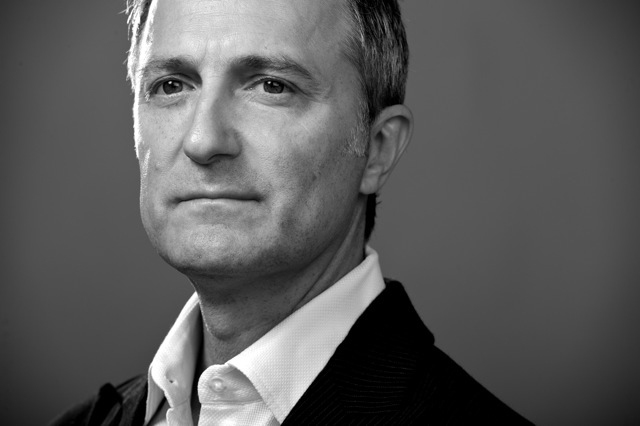Time, Distance and Clarity
For all the benefits of moving quickly we must remember to stop, to think, to see. It is in those quiet moments when we usually see much more than we’ve ever seen before. And that’s where magic can happen.
By FRANK BRUNI (read the original article)
Published: December 12, 2011
 Above Rome’s pale yellow and dusky orange buildings, the sky somehow looks bluer than it does almost anywhere else. Did I take proper note of that when I saw it all the time? When it was the canopy over my waking, my working and the all-consuming, all-distracting tedium of daily life?
Above Rome’s pale yellow and dusky orange buildings, the sky somehow looks bluer than it does almost anywhere else. Did I take proper note of that when I saw it all the time? When it was the canopy over my waking, my working and the all-consuming, all-distracting tedium of daily life?
I worry I didn’t. And I wonder how, during the two years when I called Rome home and wandered frequently through the Villa Borghese park, I never noticed an especially lush, shady patch near the Galleria Borghese that I stumbled across recently, on a return trip. Like the sky’s vividness, the discovery unsettled me. So did the regular peal of church bells, a music that must have been the soundtrack of my past but that I remembered only vaguely. It seems I failed to hear it — to listen — back then.
This is the stretch of the calendar, from Thanksgiving through New Year’s, when many of us revisit the places we’ve left behind. These journeys can be difficult, and I don’t mean the brawls over the overhead bin. Nor do I mean what Thomas Wolfe did when he contemplated the messiness of going home again, stirring up resentments and confronting how much we — and it — have changed.
What weighs on me is the opposite: how much everything has no doubt stayed the same, coupled with the recognition that I didn’t appreciate or really even examine it before. The sorrow lies there.
About a year ago I visited Chapel Hill, N.C., where I went to college, for the first time since I graduated in 1986. I ran an old running route, just to see if it conformed to my memories.
It did, in that I knew exactly where to turn and how soon the next juncture would come along. Then again it didn’t, because what I encountered along the way — the columned rotunda to my left, the storybook quadrangle to my right — had a grace and even a majesty I’d never registered before. I felt location envy, about a location I’d inhabited for no fewer than four years.
And with each stride I grew more disappointed in myself, and angrier, for having missed or at least ignored so much of this when it more or less belonged to me and was there for the taking. College was when I first, and last, had Joni Mitchell in my head, so I was well acquainted with the refrain of “Big Yellow Taxi” and its deceptively chirpy insistence that “you don’t know what you’ve got till it’s gone.” But I turned a deaf ear to the song’s message as surely as I turned a blind eye to the arboretum beside the campus planetarium, though it, too, skirted the route of my runs.
My friend J. says that I shouldn’t beat up on myself, and makes the excellent point that we’re not only older and wiser when we circle back to our former homes but we’re also, even more crucially, unencumbered guests able to take their measure and siphon off their pleasures in a way we couldn’t before.
But it’s also true that we’re often just plain oblivious to the scenery right in front of us. By being closest, it’s farthest away.
I’m not talking about obvious, monumental stuff. More than half of my New York friends haven’t been to the Metropolitan Museum of Art in five years or bothered with the Empire State Building in 20. But they know full well that they’re denying themselves glorious art and a God’s-eye view; it’s a conscious decision, made with the belief that they can always treat themselves later. That’s a foolishness all its own.
I’m talking about subtle, incidental blessings that are strangely invisible to us. My friend N. realized that there was a towering, flowering Schefflera plant in front of her childhood home in California only after she’d moved to New York and begun coveting one in a Manhattan store, which wanted $500 for it.
I’ve met a half dozen people on my Manhattan block who have never set foot inside the corner bakery, Levain, which makes what might be the best chocolate chip cookies in the city. And it’s not because these neighbors of mine are dieting. A few of them don’t even know the bakery’s there, though there are lines out the door some weekends.
I doubt any of the food got by me when I lived in Rome. Food seldom does. But too much else did. On my recent stay my companion halted in his tracks one afternoon to point out the heart-tugging perfection of the square we were in. It was the Piazza di Sant’Ignazio, one long side of which is traced by elaborately curved 18th-century buildings that evoke a rococo chest of drawers. I’d zoomed through it repeatedly years ago. And never once lingered.
On this occasion I did. And then, my lesson learned, I stopped by again the next morning, before I headed to the airport and lost the precious chance.



 facebook.com/thomasbutta
facebook.com/thomasbutta twitter.com/thomasbutta
twitter.com/thomasbutta linkedin.com/in/tombutta
linkedin.com/in/tombutta
Recent Comments